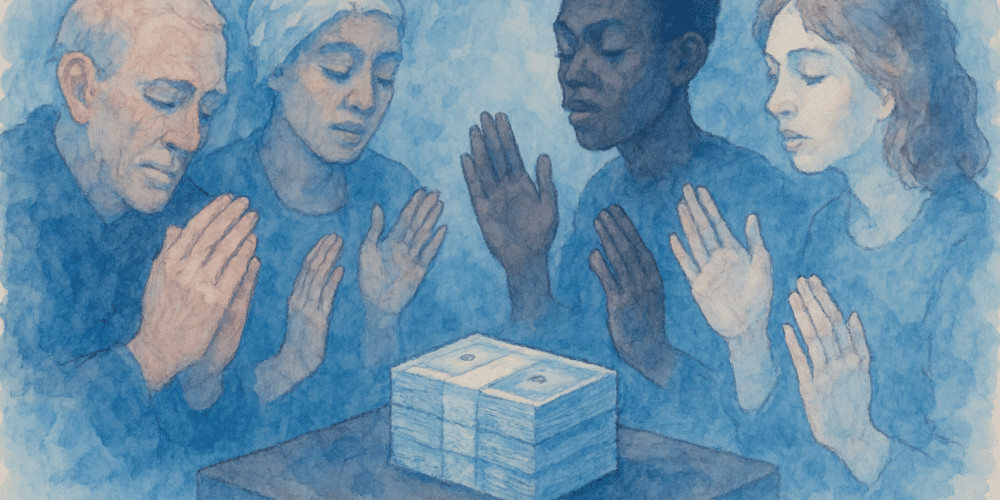Do you think people respect you for your wealth?

“The respect a person receives due to wealth is not their own; it is the respect for their wealth.”
That was written by the writer Munshi Premchand, perhaps a century ago. A man draped in money is often showered with deference, but let him lose his fortune, and watch how quickly that reverence evaporates. What Premchand pointed out—long before our era of billionaire worship and social media flexing—is a timeless truth: the honour bestowed upon a wealthy person is rarely their own. It belongs to their bank balance, their land holdings, their assets. Strip those away, and what remains? If a person commands respect only through the weight of their wealth, they are standing on borrowed ground.
They weren’t respecting you, chief; they were lusting after your wealth. They were hoping that by hanging out with you, some crumbs might fall their way. Or they were manoeuvring to wrest your riches from your hands.
History is littered with examples of this truth playing out in brutal fashion. Consider Harshad Mehta, once India’s “Big Bull,” the stock market wizard who was adored by investors, courted by politicians, and hailed as a financial genius. As long as the markets soared under his touch, admiration surrounded him. People hung on his every word, believing he had unlocked the secrets of wealth. But when his scam unraveled in 1992, exposing a web of financial manipulation, the same voices that had cheered him quickly turned against him. He went from stock market superstar to pariah almost overnight, dying in prison in 2001. The people who had once toasted his success now pretended they had never been taken in. Without his wealth, he was just another cautionary tale.
The same fate befell Elizabeth Holmes, once the golden child of Silicon Valley, lauded as the next Steve Jobs. When her company Theranos was riding high, investors, politicians, and business leaders lined up to sing her praises. But once the fraud unraveled, those voices fell silent, and the world moved on.
This fickleness is not confined to the rich and famous. In everyday life, we see how people with sudden financial windfalls—be it lottery winners or entrepreneurs striking gold or politicians in positions of power—suddenly find themselves surrounded by attention and admiration and gibbering sycophants. Yet, when their fortunes decline, so does their social standing. It is a sobering reminder that wealth does not automatically command respect; it merely rents it for a while.
If you have money, oh, how people will line up to pay their fake respects. Oh, how they will fawn in your presence. Oh, how they will hang on your every utterance, laugh at your every witticism, applaud your wisdoms. And should your money disappear, oh, how those same people will also disappear in an instant, and even join the mob in mocking you. Because those who are mesmerized by money are usually the shallowest, the most fickle members of humanity—quick to bow, quicker to betray.
True respect, the kind that withstands time and turbulence, is not built on material accumulation. It is earned through integrity, wisdom, and the ability to impact lives in a meaningful way. And it never comes from the worshippers of wealth.
Premchand’s words cut through the illusion: if the respect you command is tied to your wealth, it was never truly yours. In a world intoxicated by status and affluence, we would do well to remember that the most enduring currency isn’t money—it’s character. And true character never clamours for respect; it earns it effortlessly, without even seeking it.
That, indeed, is the paradox: those who chase respect with desperation receive only its hollow imitation; those who simply live with integrity and decency find it bestowed upon them—quietly, naturally, and without pursuit.
If respect can be bought, it can be sold. If it appears when wealth arrives and vanishes when wealth departs, it was never real in the first place. The people who truly matter in life do not measure you by your possessions. They stand by you when the numbers shrink, when the status fades, when the applause dies down. If you want to know who they are, lose something. Lose money, lose position, lose influence—and watch who stays.
The tragedy of the wealth-obsessed is that they often realize this too late. They chase money, believing it will buy admiration, only to discover they bought nothing but lust—for their possessions, not for them. True worth isn’t stored in bank accounts or asset portfolios. It lives in the impact you make, the wisdom you share, the lives you uplift. The richest among us are not those with the deepest pockets, but those who dish out kindnesses every day.
So if you must accumulate something, let it be many, many days of being a good human. Let it be character that stands when the dust settles. Let it be the kind of wealth that no market crash can erase, no betrayal can steal, no downturn can diminish. Because in the end, all money does is test the people around you. Very few will pass.
(Sunday Nation, 30 March 2025)

Buy Sunny Bindra's new book
The X in CX
here »
Popular Posts
- My books of the yearDecember 14, 2025
- Confessions of an explaining personDecember 7, 2025
- Here’s why you should become foolishNovember 30, 2025
- How to listen, really listenNovember 16, 2025
- Is AI hiring your company into oblivion?November 23, 2025















